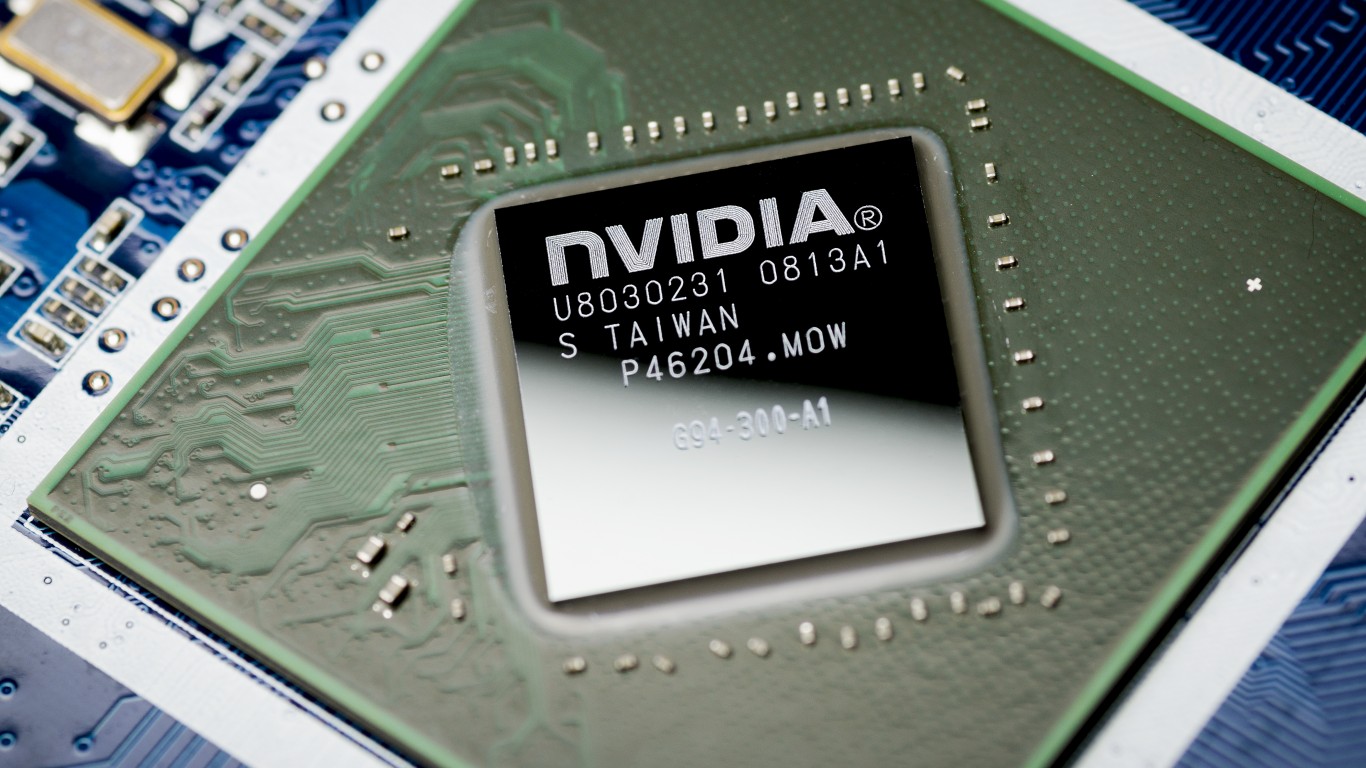

Premarket action on Monday had the three major U.S. indexes trading lower. The Dow Jones industrials were down 0.04%, the S&P 500 down 0.11% and the Nasdaq 0.21% lower.
Shares of Micron Technology Inc. (NASDAQ: MU) traded around 6% lower early Monday, following a Sunday announcement from Chinese cybersecurity regulators that some unspecified number of Micron products failed to pass a cybersecurity review and could no longer be sold in China. The cybersecurity agency launched a review of Micron’s chips less than two months ago.
The U.S. Department of Commerce said in a statement that it opposes the ban that has “no basis in fact.” The department also said it would engage with Chinese officials to “detail our position and clarify their action.”
Micron cannot have been too surprised by the Chinese move, nor should the Commerce Department have been. Just last week, Micron announced that it will invest up to $3.6 billion to bring the latest chipmaking technologies to Japan. At the time, we noted that the government of China could not ignore Micron’s deal with Japan. Carving out about 11% of Micron’s annual revenue by banning sales in China was the obvious response.
But China may have waited too long. Foreign direct investment (FDI) has been declining in China since before the COVID-19 pandemic, despite official government reports. Independent research firm The Rhodium Group wrote last December:
Official figures showing record FDI in 2020 and 2021 were inflated by short-term investments fueled by unique macroeconomic conditions. China’s high interest rates and currency strength enticed global investors to move money into China. A substantial portion of these short-term capital flows was recorded as FDI, rather than portfolio (or other) investment—as they would have been in an open market economy without capital controls and foreign ownership restrictions. …
Since 2Q 2022, inflows have slowed sharply in response to global monetary conditions as well as macroeconomic and geopolitical headwinds. The sea change in global interest and exchange rate expectations, a downward revision of China’s growth prospects, and an increasingly challenging international policy environment suggest China is headed into a period of structurally lower FDI inflows, barring meaningful policy reform in Beijing that rekindles foreign investor enthusiasm.
Now that capital flows to China are falling, the government is focusing on decoupling from the relationships it nurtured for the past couple of decades with the world’s developed economies. Noah Smith summarizes the government’s new attitude this way: “What this [decoupling] means is that after China is already done harvesting as much technology from a multinational as it can, the government will see little problem in making life progressively harder for that multinational.”
One last comment: expect to hear more about decoupling, or “de-risking” as U.S. officials have chosen to call it. Whatever its name, it means making fewer investments in China as a means to reduce a company’s risk of losing some or all of that investment. Some would add, decoupling from the whims of Xi Jinping, who is embarking on a new push for political purity.
After U.S. markets close on Wednesday, Nvidia Corp. (NASDAQ: NVDA) is expected to report quarterly results. Action on the stock in the options market is decidedly bearish. The put/call ratio for last week’s five trading sessions was above 2 on four days and above 3 on one day. Typically, this kind of options trading indicates that investors believe the share price will fall after a company reports quarterly results.
In Nvidia’s case, the high put/call ratio most likely indicates substantial profit-taking. If the stock price does indeed fall after earnings (not a lock, but a good bet), buying the stock back after the price drops is a good play for options investors. Make no mistake, over the medium term, just about everyone expects Nvidia shares to continue rising.
Here is a look at how the markets fared on Friday.
Seven of 11 market sectors closed lower on Friday. Consumer cyclicals (−0.84%) and communications services (−0.49%) had the day’s largest losses. Energy (0.73%) and health care (0.45%) posted the biggest gains. The Dow closed down 0.33%, the S&P 500 down 0.14% and the Nasdaq down 0.24% on Friday.
Two-year Treasuries added four basis points to end Friday at 4.28%, and 10-year notes rose by five basis points to close at 3.70%. In Monday’s premarket, two-year notes were trading at around 4.25% and 10-year notes at about 3.66%.
The next big economic data point comes before markets open Thursday, when the second estimate of first-quarter gross domestic product is released. The report on personal consumption and expenditures is due Friday. All this takes a backseat to a possible U.S. debt default, however.
Take This Retirement Quiz To Get Matched With An Advisor Now (Sponsored)
Are you ready for retirement? Planning for retirement can be overwhelming, that’s why it could be a good idea to speak to a fiduciary financial advisor about your goals today.
Start by taking this retirement quiz right here from SmartAsset that will match you with up to 3 financial advisors that serve your area and beyond in 5 minutes. Smart Asset is now matching over 50,000 people a month.
Click here now to get started.
Thank you for reading! Have some feedback for us?
Contact the 24/7 Wall St. editorial team.



